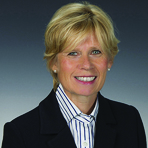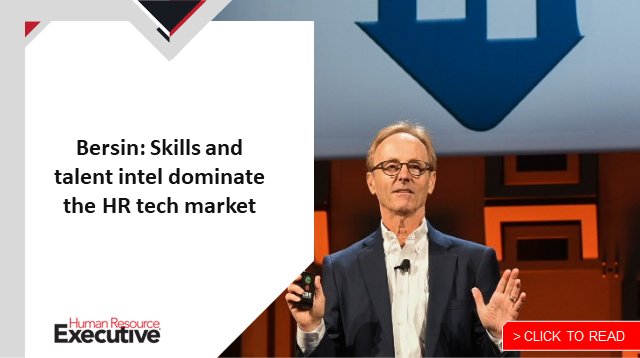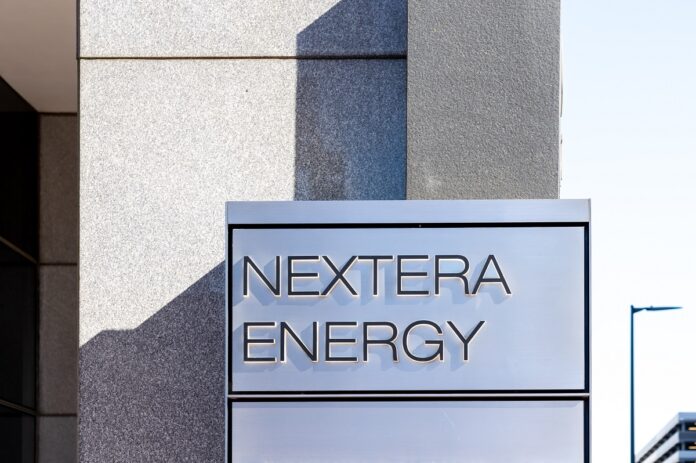Deborah Caplan, NextEra Energy’s executive vice president for human resources and corporate services, was one of three new fellows installed into the National Academy of Human Resources this month during the academy’s annual dinner in New York City.
Caplan, along with new fellows Microsoft CHRO Kathleen Hogan and The Home Depot CHRO Timothy Hourigan, recently answered questions from HRE on HR and its future.
HRE: How has your own view of the HR function changed since the pandemic started?
Caplan: At NextEra Energy, we dealt with numerous challenges as a result of the pandemic—some common to all corporations, others unique. Because NextEra Energy is a 24/7 provider of electricity across the United States, more than 20% of our workforce simply cannot perform their jobs remotely. As a result, HR had to develop a bespoke testing program and work protocols to keep these employees safe.

Regarding the rest of our workforce, no more than 400 NextEra Energy employees (out of roughly 17,000) had ever worked remotely at one time before the pandemic. Our temporary transition to and from remote work changed both how we communicate with employees and how often. Like the rest of the world, our workforce had to quickly learn to use and embrace digital tools to stay connected, and it was HR’s job to lead the charge—rolling out and educating employees on how to use these new technologies efficiently. The circumstances also demanded all-employee communications from me, our CEO and all leaders more frequently than usual. As safety was our North Star, we also began holding recurrent “Ask the Doctor” town halls to keep the dialogue open and employees informed.
Trends that evolved alongside the pandemic, such as the Great Resignation and Great Reallocation, also renewed our focus on how we present ourselves as a company to current and future employees. Pay and benefits are just a starting point. Employees also want to know their work will add value both to the company and the world. On that front, NextEra Energy has an amazing story to tell—especially with our new Real Zero goal to completely eliminate carbon emissions from our operations by 2045.
HRE: What are the skills that will make HR leaders most successful in today’s quickly changing, uncertain world of work?
Caplan: Know the business. In addition to financial results and customer satisfaction, HR professionals are in the business of delivering careers—and you can’t deliver careers without knowing the business inside and out. It’s important to not only understand but also to be an active part in shaping your company’s strategy because that’s what shapes your priorities, goals and the services HR offers.
- Focus on your team’s development. To build an agile team, it’s important to constantly feed each team member’s curiosity. When you do, they will pursue your vision with enthusiasm, as well as any new skills required to achieve the company’s goals. Never forget to engage your team members with new challenges and development opportunities. It’s also important to frequently initiate conversations about their interests and personal short- and long-term goals.
- Stay curious. Curiosity is to your career as fuel is to a vehicle—you can’t advance without it. A counterintuitive way of feeding your curiosity is to constantly expose yourself to things that may seem out of your lane. Reading, listening to and attending seminars or events that may seem only tangentially related to your role is a great way to feed your curiosity and make groundbreaking connections you wouldn’t have otherwise. It’s also important to stay curious about and become savvy with the latest digital tools, big data and disruptive technologies that could apply to your business as well as your team.
- Stay connected. One thing I love about the broader HR community is how collaborative we are and how willing we are to help and share with one another. Building a strong external network is another way of staying current and feeding your curiosity. Stay active and connected with your peers across industries as well as to peers who’ve moved out of the function—and remember to give as much as you receive.
HRE: What area of HR holds the most promise to be positively impacted by the use of emerging technologies in the next few years?
Caplan: Technologies like artificial intelligence and machine learning are having an extraordinarily positive impact for everything from medical benefits, recruiting and internal mobility to everyday HR transactions for employees and leaders.
 When it comes to medical benefits, your biggest challenge is providing affordable care—both for employees and the company—without sacrificing quality. At NextEra Energy, we continue to leverage big data to identify high-quality, affordable healthcare as well as cost-saving opportunities. By using de-identified claims data to evaluate the quality of healthcare providers by outcome track record, we’ve been able to incentivize employees to pick providers with the best outcomes. And, through our Health Transformation Alliance, we are pooling our data with 47 other companies for macro-level insights. It’s a fantastic use of big data and the work continues as the medical industry is never stationary.
When it comes to medical benefits, your biggest challenge is providing affordable care—both for employees and the company—without sacrificing quality. At NextEra Energy, we continue to leverage big data to identify high-quality, affordable healthcare as well as cost-saving opportunities. By using de-identified claims data to evaluate the quality of healthcare providers by outcome track record, we’ve been able to incentivize employees to pick providers with the best outcomes. And, through our Health Transformation Alliance, we are pooling our data with 47 other companies for macro-level insights. It’s a fantastic use of big data and the work continues as the medical industry is never stationary.
In addition, NextEra Energy is also leveraging AI and machine learning to streamline the application process for our recruits with a virtual job assistant named “Olivia.” Olivia can answer questions and help applicants search and apply for jobs with ease.
Internally, we’re leveraging a new “Opportunities Marketplace” where employees can find available opportunities within the organization and discover what skills they need to work on in order to make their next career move. The marketplace will also create a window into the entire organization’s skillset, interests and work history, allowing leaders to understand any skill gaps and make macro decisions.
Technology is also allowing us to give employees and leaders a personalized, top-rated “customer” experience similar to companies in the retail industry, such as Amazon. We’ve been able to create an easy-to-navigate interface where you can find content on our policies and associated HR transactions for optimal employee and leader self-service. AI and machine learning are also playing a role in answering questions with ease and speed so our employees and leaders can focus on their core job functions.
HRE: Your educational background is in engineering; what was the shift like moving into HR?
Caplan: While I do have a couple of degrees in engineering, I have also worked in 10 different functions in three different industries. In other words, I’ve had a lot of practice with transitions. Moving from one function to another taught me a lot about how to contribute as quickly as possible.
The biggest challenge with my move to HR was due to the fact that I came in at the very top. I had to quickly understand my responsibilities to the CEO and board of directors, settle into my advisory role in relation to the CEO and my peer group, as well as master the details related to benefits, pension accounting, etc. Fortunately, from the get-go, I had an outstanding team of experts who quickly brought me up to speed.
In terms of what I carried over from engineering, I would say my focus on data and process were a major asset in terms of making HR services more user-friendly from a client perspective.
HRE: How has NextEra shifted its strategy to health and wellbeing in light of the events of the last few years?
Caplan: The physical safety and wellbeing of our employees have always been our focus—and we’ve been at it for over 30 years with three different CEOs. That said, the COVID-19 pandemic simultaneously changed and raised our standards. Beyond us needing to ensure access to testing and vaccines, the pandemic also reframed what mental and emotional support look like. For instance, social connectedness took on a completely different meaning when the vast majority of our workforce was remote and morphed once more when our workforce returned to the office. It’s yet another reminder that you have to be agile in an uncertain world and that you are never done advancing the wellbeing of employees. You must continually enhance and renew your program to ensure employees are able to live healthy and fulfilling lives.



